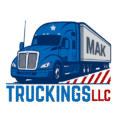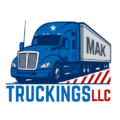Efficient logistics are the backbone of a successful trucking operation. At the heart of this efficiency lies a critical function: professional truck dispatching services. This core operational component does more than just assign loads; it orchestrates the entire movement of your fleet. For owner-operators and small to mid-sized fleets, mastering or outsourcing this function is a proven strategy to elevate performance and ensure business growth.
- What Are Truck Dispatching Services?
- Core Functions of a Truck Dispatcherhttps://maktruckings.com/#about
- The Strategic Advantage of a Professional Service
- How to Choose the Right Truck Dispatching Servicehttps://maktruckings.com/#contact
- Conclusion: Elevating Your Operational Blueprinthttps://maktruckings.com/#home
What Are Truck Dispatching Services?
Truck dispatching services form the central nervous system of a freight transportation business. A dispatcher acts as the crucial link between the truck driver and the client, managing the logistics of moving freight from point A to point B. This role is multifaceted, involving communication, negotiation, and meticulous planning. The primary goal is to ensure that trucks are moving with profitable loads, adhering to strict schedules, and complying with all regulatory requirements, thereby maximizing asset utilization and revenue.
Core Functions of a Truck Dispatcher
A dispatcher’s job extends far beyond sending a driver to a pick-up location. It is a dynamic role that requires a diverse skill set. The key responsibilities include:
- Load Planning and Acquisition: Dispatchers actively search for and secure freight through load boards, broker relationships, and direct shipper contacts. They negotiate rates to ensure profitability.
- Route Optimization: They plan the most efficient routes, considering factors like distance, traffic patterns, weather conditions, and Hours of Service (HOS) regulations. Using advanced software is standard practice.
- Real-Time Communication: A dispatcher is the main point of contact for drivers on the road. They provide updates, troubleshoot issues (like breakdowns or detention), and relay crucial information to customers.
- Documentation and Compliance Management: They ensure all paperwork, such as Bills of Lading (BOLs) and proof of delivery, is accurately completed and processed. They also help drivers stay compliant with HOS rules via electronic logging devices (ELDs).
- Customer Service: Dispatchers maintain clear and professional communication with shippers and brokers, providing status updates and managing expectations to foster strong, lasting partnerships.
The Strategic Advantage of a Professional Service
Many owner-operators start by dispatching themselves, but this often leads to burnout and inefficiency. Partnering with a dedicated truck dispatching service provides a significant strategic advantage. It allows drivers and fleet owners to focus on their primary tasks—safe driving and business growth—while experts handle the complex logistics.
The benefits of using a professional service are clear:
- Access to Better Freight Rates: Experienced dispatchers have established networks and negotiation skills to secure higher-paying loads, often offsetting their service fee.
- Reduced Deadhead Miles: Through strategic planning and backhaul coordination, dispatchers minimize empty miles, which directly increases your revenue per mile.
- 24/7 Operational Support: Many services offer around-the-clock support, assisting drivers at any time, which is crucial for meeting tight deadlines and handling emergencies.
- Leverage of Advanced Technology: Professional services invest in premium dispatch software, load board subscriptions, and route planning tools, giving you a technological edge without the direct cost.
- Scalability: As your business grows, a dispatching service can easily scale its support, managing multiple trucks without a drop in performance.
For more on managing your business finances, explore our guide on revenue cycle management.
How to Choose the Right Truck Dispatching Service
Selecting a dispatch partner is a critical business decision. Not all services are created equal, and finding the right fit requires due diligence. Here are key factors to consider:
- Industry Experience and Reputation: Look for a service with a proven track record in your specific niche (e.g., flatbed, reefer, dry van). Check online reviews and ask for references.
- Fee Structure: Understand how they charge. The most common models are a flat weekly fee or a percentage of the load revenue (typically 5-10%). Ensure the structure is transparent and aligns with your profitability goals.
- Communication Protocol: Your dispatcher will be an extension of your business. Clarify their preferred communication methods (phone, text, messaging apps) and their availability. You need a partner who is responsive and proactive.
- Technology and Tools: Inquire about the software and tools they use. A competent service will utilize modern truck dispatching services platforms that provide you with real-time visibility into your loads and finances. The Federal Motor Carrier Safety Administration (FMCSA) provides resources on technology and safety compliance that many top services adhere to.
- Contract Terms: Review the service agreement carefully. Look for the contract length, termination clauses, and any hidden fees. A flexible, month-to-month agreement is often preferable when starting a new partnership.
To understand the full scope of operational management, you can learn more about our comprehensive operational support.
Conclusion: Elevating Your Operational Blueprint
In the competitive landscape of trucking, efficiency is not just a goal—it is a necessity. Professional truck dispatching services provide a proven framework to streamline your operations, reduce administrative burdens, and increase profitability. By delegating this complex, time-consuming task to experts, you free up valuable resources to focus on what you do best: running and growing a successful trucking business. The right dispatch partner doesn’t just find you loads; they become an integral part of your strategy to elevate your entire operation.

